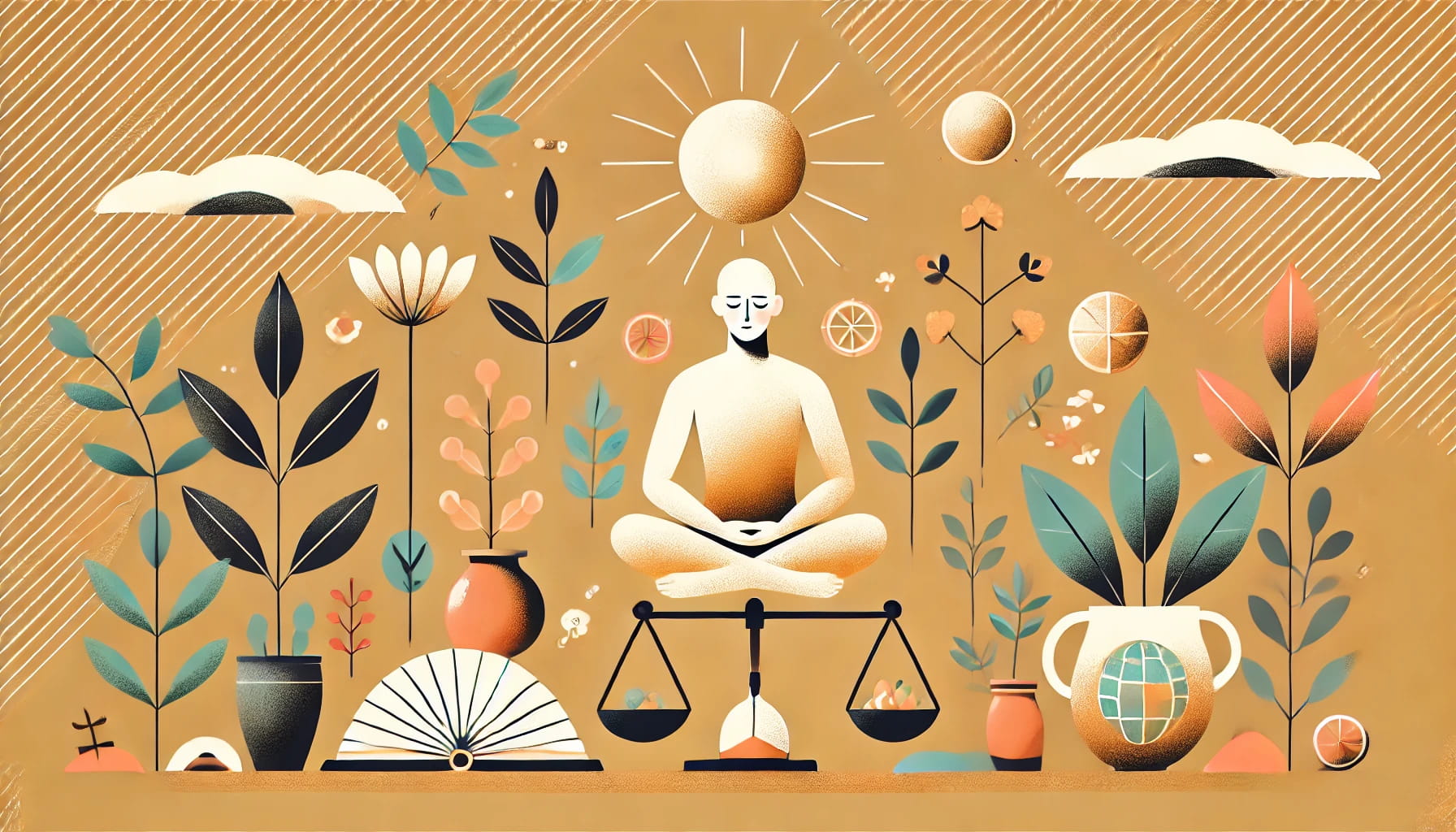In a world driven by consumerism, the pursuit of material wealth often overshadows the quest for inner peace and meaningful living. The constant cycle of acquiring and discarding goods not only strains the environment but also fosters dissatisfaction and anxiety. Stoicism, an ancient philosophy that emphasizes simplicity, virtue, and self-control, offers a powerful framework for embracing sustainable living. By consuming less and focusing on what truly matters, Stoicism provides a path to greater fulfillment while reducing our ecological footprint.
This essay explores how Stoic principles align with sustainable living, offering practical guidance for a life of simplicity and purpose.
Stoicism and Consumerism: A Philosophical Contrast
At its core, Stoicism teaches that true happiness comes not from external possessions but from internal virtues. Epictetus, a prominent Stoic philosopher, warned against becoming enslaved by desires, stating, “Wealth consists not in having great possessions, but in having few wants.” This mindset directly counters modern consumerism, which equates happiness with the accumulation of goods.
Stoicism invites us to question whether our purchases bring genuine value or merely serve as distractions from deeper fulfillment. By aligning our actions with this philosophy, we can prioritize sustainability over excess, leading to a more balanced and intentional life.
Key Stoic Principles for Sustainable Living
- Practicing Temperance (Moderation)
The Stoic virtue of temperance emphasizes self-control and moderation in all aspects of life. This principle is particularly relevant in the context of consumption. By resisting the urge to indulge in unnecessary purchases, we reduce waste and live more sustainably.For example, adopting a minimalist approach to clothing, gadgets, or home decor aligns with the Stoic ideal of living simply. Each decision to consume less contributes to a healthier planet and a calmer mind. - Focusing on What Is Essential
Stoicism encourages us to differentiate between needs and wants. Marcus Aurelius wrote, “Very little is needed to make a happy life; it is all within yourself, in your way of thinking.” This perspective helps us recognize that fulfillment often comes from experiences, relationships, and personal growth, rather than material possessions.By prioritizing essentials and letting go of superficial desires, we align our lifestyle with both Stoic and sustainable values. - Amor Fati: Loving What You Have
Amor fati, or the love of fate, teaches us to appreciate what we already possess. Gratitude for the present reduces the compulsion to seek happiness through new acquisitions. This principle can be applied to sustainable living by encouraging reuse, repair, and appreciation for what we own. - Living in Harmony with Nature
Stoicism emphasizes aligning with nature, both in our personal lives and our broader responsibilities. Reducing consumption, minimizing waste, and supporting environmentally friendly practices reflect this alignment. Seneca advised, “Man is affected not by events, but by the view he takes of them.” Viewing sustainability as a virtuous choice fosters a stronger connection to nature.
Practical Steps for Stoic Sustainable Living
- Adopt a Minimalist Mindset
Evaluate your possessions and identify what truly adds value to your life. Donate or recycle items you no longer need, and avoid acquiring unnecessary goods. - Embrace Voluntary Discomfort
The Stoics practiced voluntary discomfort to build resilience and gratitude. Try living without certain luxuries temporarily, such as reducing energy use or avoiding non-essential shopping. - Support Ethical Practices
Choose products and services that align with sustainable values. Support local businesses, buy second-hand, and prioritize quality over quantity. - Reflect Daily
Incorporate Stoic journaling to evaluate your choices. Ask yourself: Did my actions today contribute to a simpler, more sustainable life?
The Benefits of Stoic Sustainable Living
Integrating Stoic principles with sustainable living brings numerous benefits:
- Inner Fulfillment: By focusing on essentials, we free ourselves from the anxiety of consumerism.
- Environmental Impact: Consuming less reduces waste, conserves resources, and minimizes carbon footprints.
- Financial Freedom: Moderation in spending allows for greater savings and financial security.
- Stronger Values: Living in harmony with nature strengthens our sense of purpose and moral integrity.
Conclusion: A Stoic Path to Sustainability
Stoicism offers timeless wisdom for addressing the challenges of modern consumerism. By practicing temperance, focusing on essentials, and appreciating what we have, we can cultivate a life of simplicity and fulfillment while contributing to a healthier planet.
As Marcus Aurelius wrote, “Waste no more time arguing about what a good man should be. Be one.” This call to action inspires us to embody sustainable values, living with intention and purpose. Through Stoicism, sustainable living becomes not just an environmental choice, but a profound journey toward greater peace and harmony.

